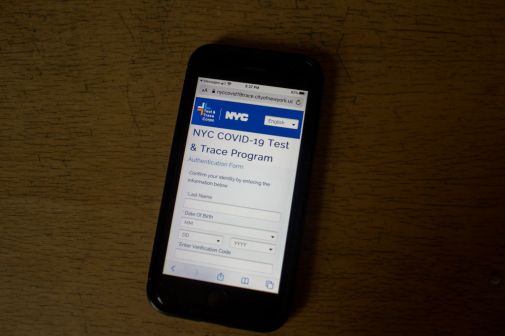Dozens of agencies open up data for National Day of Civic Hacking
Everything from hydraulic fracturing to cybersecurity will be up for disruption Saturday, as more than 10,000 hackers, community organizers and other innovators are expected to use and build on government data during the country’s National Day of Civic Hacking.
With more than 100 cities planning to host challenges or hackathons, dozens of federal agencies have opened data sets seeking solutions for issues they’ve been working on for some time.
Nicholas Skytland, a NASA data evangelist and co-founder of the event, said the day is an opportunity to draw in minds that aren’t normally in tune with government projects.
“We hope [the day] starts a conversation on how to improve government,” Skytland said. “It takes events like this to convene people to get the right diversity in the room to really come up with those ideas.”
Skytland helped develop a challenge this year that will unlock NASA, National Oceanic and Atmospheric Administration, and U.S. Geological Survey data for people to show or map how climate change is affecting public health. Teams in Denver; El Paso, Texas; Houston and Philadelphia will also contribute data on natural gas use and electricity bills to build on the data coming from the agencies.
Skytland hopes this collaboration from all levels of government will stoke these types of challenges.
“Often times, federal agencies don’t work together. We had to envision what was possible,” Skytland said. “It’s not just federal challenges or improving our government. It’s about improving our cities as well. We really wanted this to be relevant to cities that might be dealing with the health impacts of climate change.”
The Census Bureau is also looking to tap into cities with a challenge related to its newly released CitySDK. Through this platform, cities can use Census APIs, or application programming interfaces, to develop apps or services that combine various data sets related to a mix of economic, environmental, social, cultural and housing themes.
Jeff Maisel, a Presidential Innovation Fellow on detail at the Commerce Department, called CitySDK “a cookbook” for developers who are looking harness city data normally stuck in silos.
“The city is at the core,” Maisel said during a CitySDK demo in March. “We have a public API and incredible data, but we have to understand how that data is being used in the developer community. By making public APIs easier to use, we want to help our end users build transformative products at the city level by making data more interoperable between federal, state and local data.”
The Federal Trade Commission is looking to collaborate with the private sector through its DetectaRobo challenge, the latest in a line of tech events aimed at ending robocalls. Announced earlier this year, Atlanta-based anti-fraud company Pindrop Security will release data for people to build a honeypot — an algorithm that could trap robocalls before they are picked up by a consumer.
The challenge builds off of the FTC’s Zapping Rachel contest, which was run at DEF CON last year. The commission’s work is in partnership with the Ireland-based Messaging, Malware and Mobile Anti-Abuse Working Group.
“The challenge is meant to glean on the insights we picked up from DEF CON, but with a different community of technologists,” said Patricia Hsue, an attorney in the FTC’s Bureau of Consumer Protection.
While the FTC only has a small amount of data for people to use, the Centers for Disease Control and Prevention is giving people 20 years’ worth of data related to tobacco use as part of its challenge.
Partnering with the Seattle-based open data discovery company Socrata, the CDC is calling for people to create maps or visualizations from data collected in its Tobacco Use Data Portal or Smokefree Indoor Air Dataset, which have millions of data points from every state and Washington, D.C., for the past two decades.
Allison E. MacNeil, who works in the CDC’s Office on Smoking and Health, said she wants this data to “come to life” for a problem that remains the leading cause of preventable disability and death in the United States.
“The challenge is intended to help us find ways to present the millions of rows of data in a more visual, consumable way,” MacNeil said. “If a person can quickly scan an infographic or a map and easily see the story that the data is telling, it can reach a much wider audience than looking at just a dataset full of lines of data.”
While a number of challenges are aimed at making data easier to digest, the National Institute of Standards and Technology wants people to create a user-friendly tool that directs people to websites using multi-factor authentication.
The effort builds on top of NIST’s National Strategy for Trusted Identities in Cyberspace, which is aimed at creating next-generation identity solutions.
“We believe it takes a diversity of activities, including standards development, pilots, and public-private partnerships to fundamentally improve online identity—and this challenge is another small step in getting us closer to our goal,” said NIST’s Kristina Rigopoulos.
On top of the federal challenges, there are a number of hackathons scheduled all over the world Saturday from Bangor, Maine to the beaches of Santa Monica, California; from Tulsa, Oklahoma to Tel Aviv.
This worldwide effort is something Skytland called “incredible,” having only launched the event in 2013.
“We started the first year where people told us we were crazy,” he said. “People didn’t understand what a hackathon could do at a city level and a government level. This is what we hoped this day would become, to see mature into this. I anticipate it will grow and continue to be an innovation platform for the government and citizens alike in the years to come.”
For all of Saturday’s events, check out hackforchange.org.






